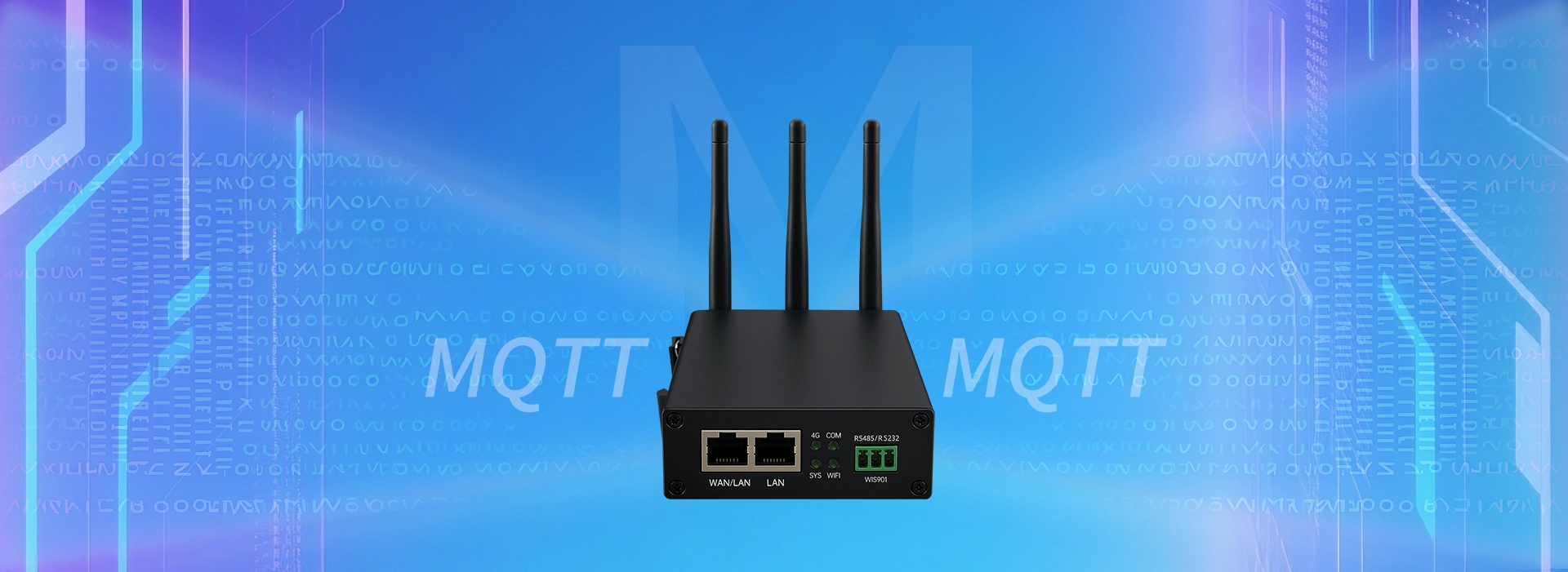
4G Industrial Gateway and MQTT Protocol
4G industrial gateways are key devices in the Industrial Internet of Things (IIoT), connecting field equipment to cloud platforms and typically enabling remote data transmission via 4G cellular networks. The MQTT protocol (Message Queuing Telemetry Transport) is a lightweight, publish/subscribe-based messaging protocol widely used in IoT scenarios, especially suitable for industrial environments with limited bandwidth and unstable networks.

▶ Integration Advantages of 4G Industrial Gateways and MQTT Protocol
Seamless Protocol Conversion and Interoperability
Modern 4G industrial gateways often integrate the MQTT protocol alongside traditional industrial protocols (such as RS485/Modbus), enabling seamless data exchange between devices using different protocols. For example, the gateway can collect data from PLCs or sensors on an RS485 bus and upload it to the cloud platform via MQTT, bridging field devices and cloud applications.
Efficient Data Communication
The MQTT protocol adopts a publish/subscribe mechanism and supports bidirectional communication, enabling real-time status updates and remote control of devices. Compared to traditional transparent transmission methods, MQTT significantly reduces invalid data transmission, improves communication efficiency, and lowers concurrent load on cloud platforms.
Remote Monitoring and Edge Computing
4G industrial gateways typically possess edge computing capabilities, allowing for local data preprocessing, filtering, and analysis. Only valid data is uploaded via MQTT, which not only enhances response speed but also reduces cloud load, enabling remote monitoring, maintenance, and management of devices.
Easy Integration with Mainstream IoT Platforms
4G industrial gateways supporting MQTT can quickly connect to mainstream IoT platforms such as Alibaba Cloud, Huawei Cloud, Tencent Cloud, and Baidu Cloud, achieving cloud integration and business expansion for device data.
Enhanced Security
The MQTT protocol supports authentication, authorization, and data encryption. Combined with the gateway’s security features (such as VPNs and firewalls), this effectively ensures the security and integrity of data transmission.
▶ Typical Application Scenarios
- Remote device monitoring and maintenance (e.g., PLCs, sensors, instruments, and other industrial field devices)
- Data collection and cloud management in smart factories, smart energy, smart water services, and other industries
- Remote alarms, status updates, and remote control in industrial automation systems
- Data preprocessing and intelligent decision-making in edge computing scenarios.
The integration of 4G industrial gateways and the MQTT protocol greatly enhances the efficiency, scalability, and security of data communication in the Industrial Internet of Things. Through MQTT, 4G industrial gateways can efficiently and reliably upload field device data to cloud platforms, enabling remote monitoring, intelligent analysis, and business innovation. This combination is a core technology in modern industrial automation and smart factory construction.